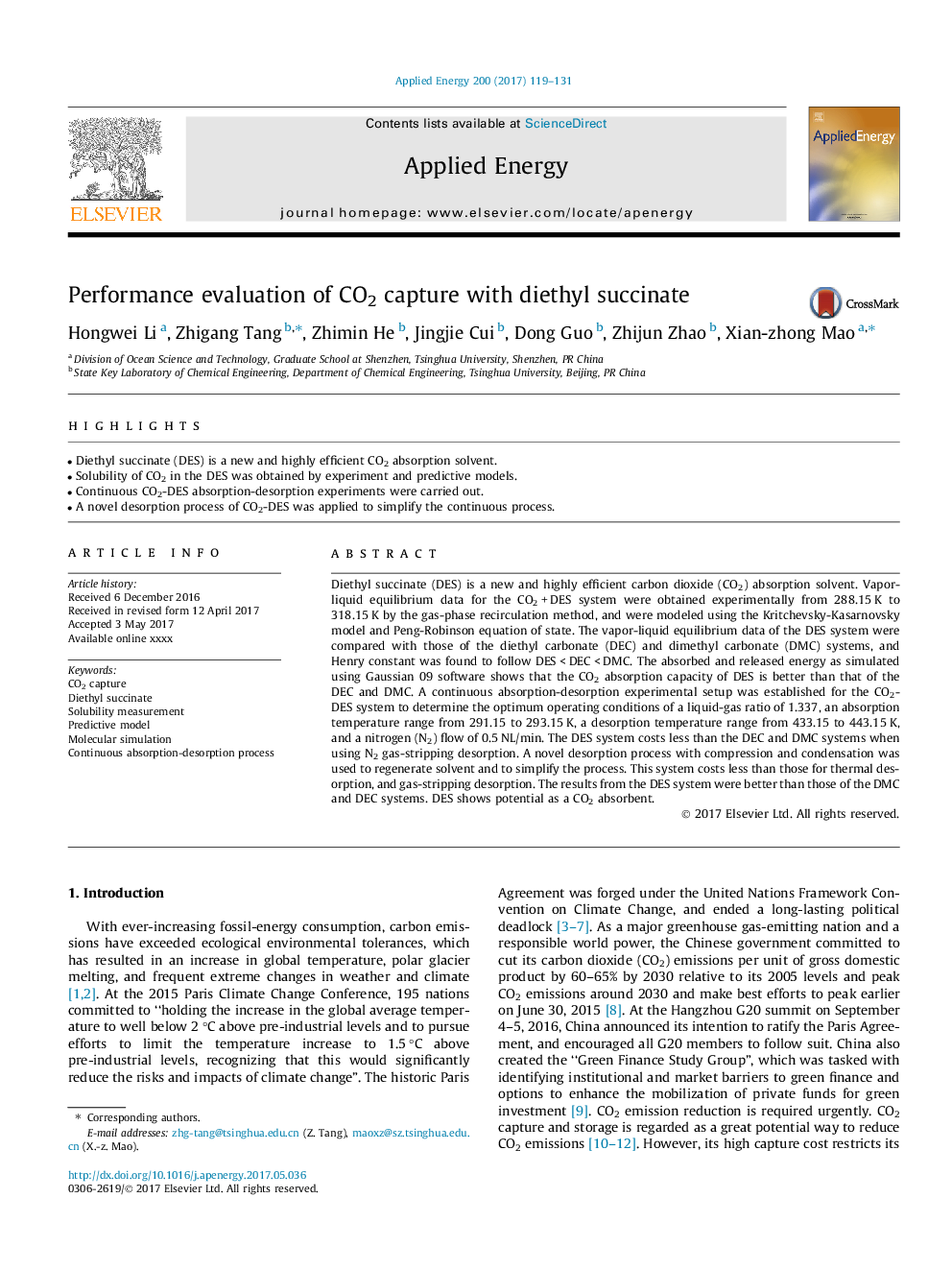| Article ID | Journal | Published Year | Pages | File Type |
|---|---|---|---|---|
| 4916147 | Applied Energy | 2017 | 13 Pages |
Abstract
Diethyl succinate (DES) is a new and highly efficient carbon dioxide (CO2) absorption solvent. Vapor-liquid equilibrium data for the CO2Â +Â DES system were obtained experimentally from 288.15Â K to 318.15Â K by the gas-phase recirculation method, and were modeled using the Kritchevsky-Kasarnovsky model and Peng-Robinson equation of state. The vapor-liquid equilibrium data of the DES system were compared with those of the diethyl carbonate (DEC) and dimethyl carbonate (DMC) systems, and Henry constant was found to follow DESÂ <Â DECÂ <Â DMC. The absorbed and released energy as simulated using Gaussian 09 software shows that the CO2 absorption capacity of DES is better than that of the DEC and DMC. A continuous absorption-desorption experimental setup was established for the CO2-DES system to determine the optimum operating conditions of a liquid-gas ratio of 1.337, an absorption temperature range from 291.15 to 293.15Â K, a desorption temperature range from 433.15 to 443.15Â K, and a nitrogen (N2) flow of 0.5Â NL/min. The DES system costs less than the DEC and DMC systems when using N2 gas-stripping desorption. A novel desorption process with compression and condensation was used to regenerate solvent and to simplify the process. This system costs less than those for thermal desorption, and gas-stripping desorption. The results from the DES system were better than those of the DMC and DEC systems. DES shows potential as a CO2 absorbent.
Related Topics
Physical Sciences and Engineering
Energy
Energy Engineering and Power Technology
Authors
Hongwei Li, Zhigang Tang, Zhimin He, Jingjie Cui, Dong Guo, Zhijun Zhao, Xian-zhong Mao,
